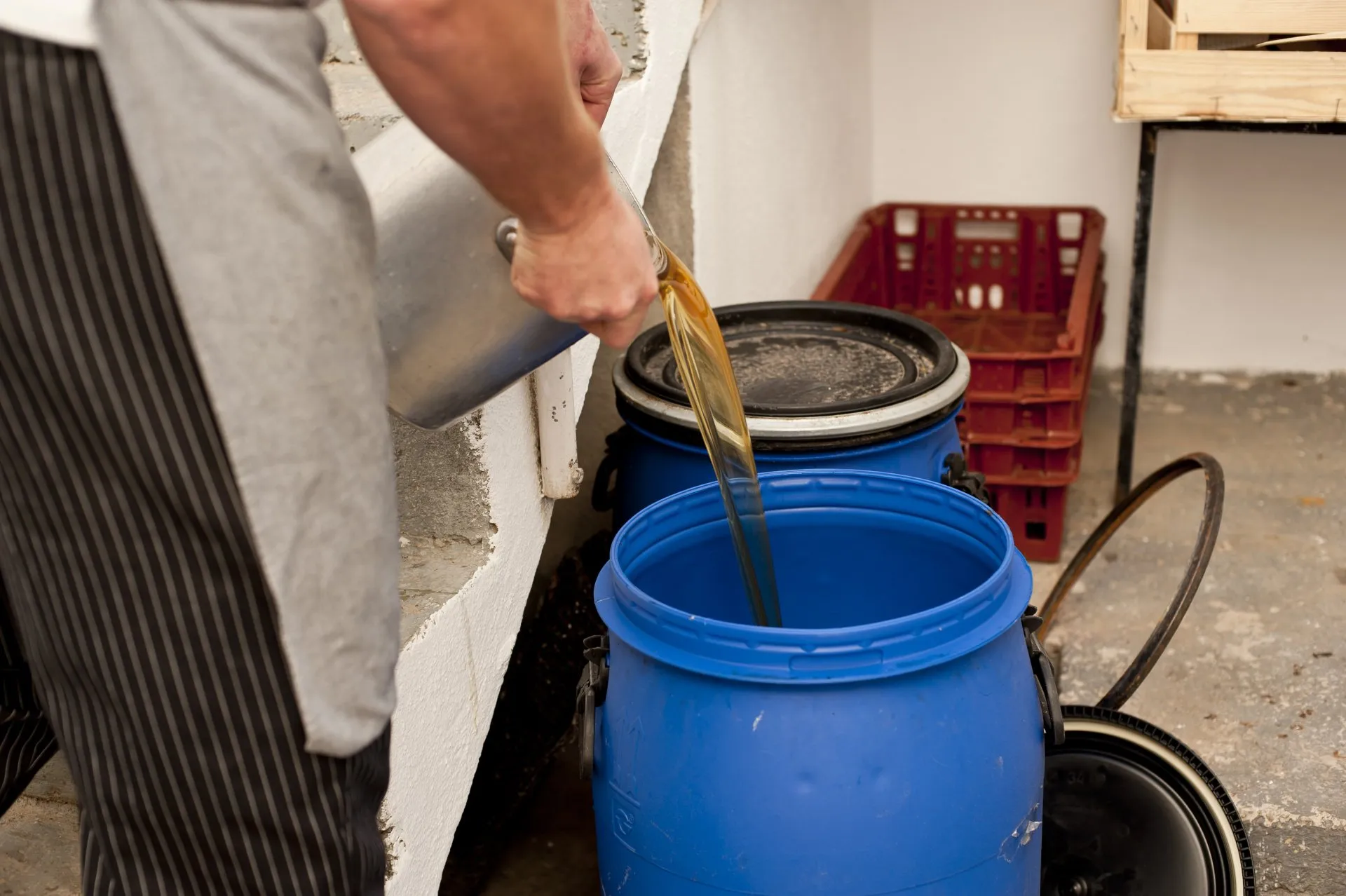Our waste oil collection service provides you with a means of removing different types of waste oils and solvents from your site at very competitive rates. However we will do the legwork, providing you with all legal paperwork making sure you are compliant with Environment Agency regulations, giving you complete peace of mind.
Just 1 litre of oil can contaminate 1 million litres of water.
Split oil can pollute streams, rivers and, it soaks through the soil and rock, groundwater. Many drains lead directly to rivers, streams or lakes, and if you allow oil to enter a drain it can have the same effect as you pouring it directly into a watercourse. Oil is toxic and harmful to plants and animals and a threat to their habitats. In the ground and soil oils coat or kill the organisms which are necessary to maintain the environmental balance.
Oil spills can make drinking water sources unfit for use and is very expensive to put right. In the UK our drinking water supplies come from rivers and groundwater. We must protect them both from pollution.
Used Cooking Oil Recycling process
The Environmental Benefits of Recycling Oil

Recycling oil is good for the environment and your bottom line in a couple of important ways.
Businesses in Georgia that fail to properly dispose of their waste cooking oil run the risk of incurring significant fines. Fryer oil recycling has also turned into a pretty lucrative business and allows food service companies to recoup some of their oil purchase costs.
Not every business or fryer oil recycler is detail oriented when it comes to tracking fryer oil recycling. That leaves room for bad actors to misreport how much oil they collect or recycle for their customers, which in turn lets those companies underpay their food service recycling clients.'
When you choose a company to recycle your waste oil, make sure to learn about their reporting system and how they provide transparent accountability in their recycling services.
The Many Environmental Benefits of Fryer Oil Recycling
Fryer oil, or waste vegetable oil, can be turned into feed stock or biodiesel fuel by cutting-edge waste oil recycling facilities like the one operated by Southern Green Industries. You can help keep waste oil out of sewers, landfills and our local environment while getting paid for your efforts.
Turning food waste into clean burning fuel to power vehicles or food for livestock is also far preferable to having that oil pollute the environment or clog city sewers.
The Community Benefits of Fryer Oil Recycling
Prior to recycling or the regulation of FOG, clogged sewers and backups were a frequent problem for municipalities and watershed management professionals. Oils of any kind aren’t good for the environment, and they shouldn’t just be dumped down drains. Food service businesses in Atlanta are required to adhere to strict FOG disposal guidelines. At Southern Green Industries we’re committed to helping local businesses adhere to those rules and get a healthy rebate for their efforts.
What Are the Benefits of Using Southern Green Industries for Your Oil Recycling?
- We’re committed to transparency and honesty
- We’ll pay you a competitive price for your waste oil
- We can provide securable grease containers at no cost to you
- Our scheduled or on-request fryer waste oil pickups are fast and easy
- Our easy-to-use digital dashboard will let you check our pickups and payments against your own inventory records
- You won’t need to keep a traditional waste oil bin behind your business
Different food service clients require different sized grease containers depending on the volume of fryer oil they go through on a regular basis. We’ll install and secure an appropriately sized container to make sure all of your grease collection needs are met.
Some of our containers can even be installed with automatic systems that will drain grease from your fryer directly into the container, after which our team can collect it and haul it to the recycling facility.
From small, single-store businesses to franchises with dozens of locations, we can develop a solution that allows easy, turn-key waste oil collection and recycling.
Why Should You Ditch the Bin?
Every food service business owner who uses the traditional bin collection system for waste oil understands the drawbacks:
- Bins are a gross, messy, smelly addition to your property, even when they’re out back
- The process of handling fryer oil and hauling it out to a bin poses a significant risk for employee injuries
- Fryer oil can be spilled while getting it out of fryers or hauling it to the bin, potentially causing burns and creating hard-to-clean messes
- Bins are susceptible to oil theft, which can be a surprisingly profitable businesses for motivated criminals
Our free oil containers range in size from five gallons to 500 gallons, and all of our equipment is custom fabricated for our customers. We can install a system where your waste oil is automatically drained into your free container and is picked up by our highly skilled team. This system eliminates the risk of spills or injuries, significantly reduces theft risk and makes your property cleaner and more sanitary.















